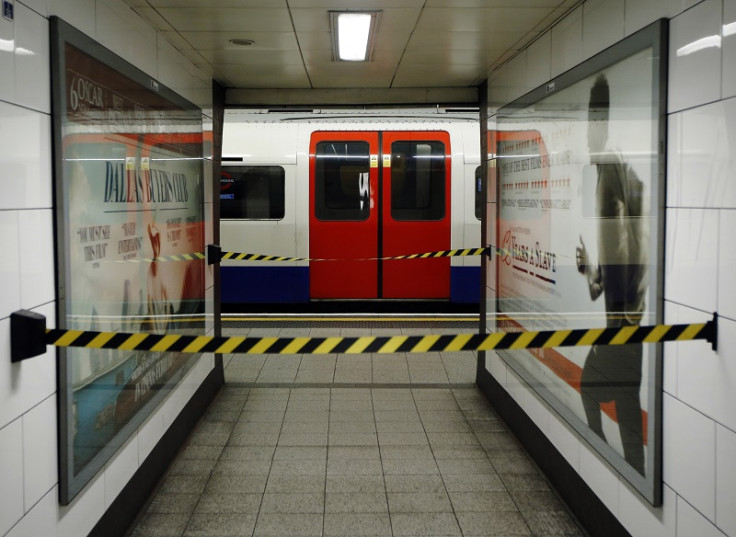London Tube Strike: While Bob Crow Battles Boris Staffless Ticket Office Trial Could be Light in Tunnel for Commuters

Groggy headed, frustrated and annoyed Londoners kicked and crawled their way into work this morning. A lucky minority of commuters were able to take the underground. The stations were predictably crammed and the odd agitator kicked up a fuss by asking fellow travellers, who were already doing their best impression of a flatfish, to try and compress themselves even more. But the transport system worked remarkably smoothly in places.
After walking two miles to my nearest working station, I joined a heard of Northern Line commuters heading south. Despite a bit of barging and bags biting at my legs, I had no complaints. The train driver kept everyone in the loop with travel updates every minute and commuters skillfully darted in and out of carriages and weaved through human traffic.
Some Londoners were treated to a trial run of what the underground would like look like without ticket office staff. The problem for the Rail, Maritime and Transport Workers Union and the Transport Salaried Staffs' Association, the trade unions which called the strike, is that some people's experience was positive.
Certainly, there's been a lot of moaning – especially from the National Nattering Association who converse on Twitter – but people seem to be getting on with it. The strike could easily backfire for Bob Crow, the general secretary of the RMT.
The union boss has come under criticism for a lavish holiday to Brazil, his six figure salary and the fact that the so-called socialist lives in a council house.
Hundreds of ticket office jobs are to be scrapped under the London Underground's transformation plan. Even though Transport for London has said it can manage the cuts without compulsory redundancies, it would still be enough to get my blood boiling if I were an RMT or TSSA member. Crow's just doing his job.
It seems the public also understand the RMT's position. Before the industrial action took effect, the union published a poll from researcher Survation which found that almost two thirds (65%) of tube users felt that lawful industrial action as a last resort was justified and a similar amount (66%) were concerned at the Mayor of London's closure plans.
But Crow's shtick as the cheeky Cockney man-of-the-people is wearing thin. Show someone a pay-slip from a tube driver, who earn a basic yearly salary of £44,000 plus perks, and watch them go doolally. Crow has made them the fat-cat workers of the public sector. This is probably partly why his members keep electing him – he delivers for the workers. The other thing that is keeping Crow at the top is Boris Johnson.
The Mayor of London is the archetype baddie for the trade unions. Upper-middle class, Old Etonian, Oxford graduate and a Tory. This toff at the top is the perfect villain for Crow to take on. But for everyone else, the innocent bystanders in the Battle of the Egos, Crow and Johnson are starting to look more like warring twins fighting over a toy train set.
The staffless ticket office trial run nearly over and Crow exposed as Johnson's alter ego, I wonder what the polling figures would look like if Survation conducted its survey tomorrow.
© Copyright IBTimes 2025. All rights reserved.






















